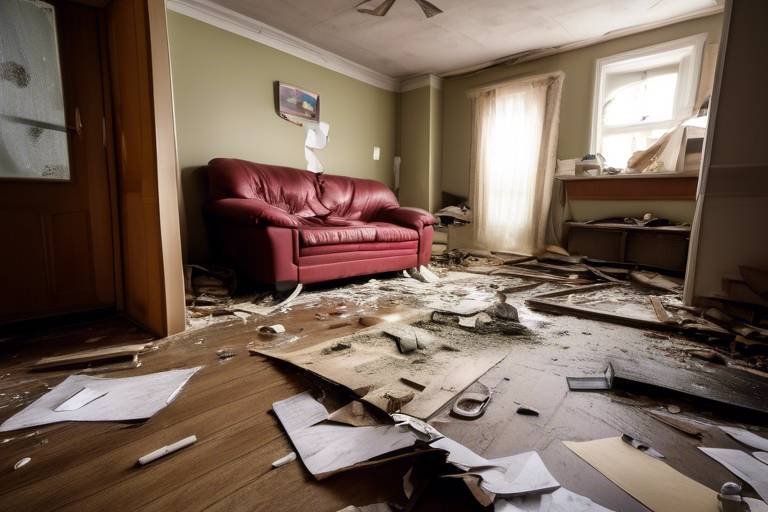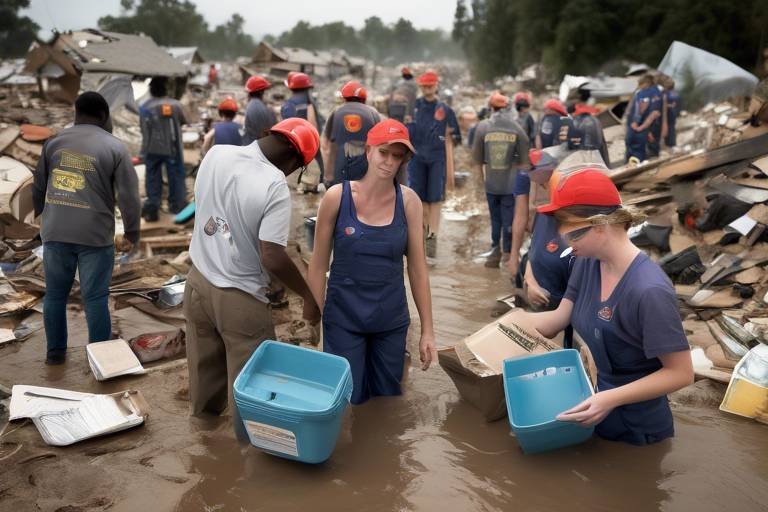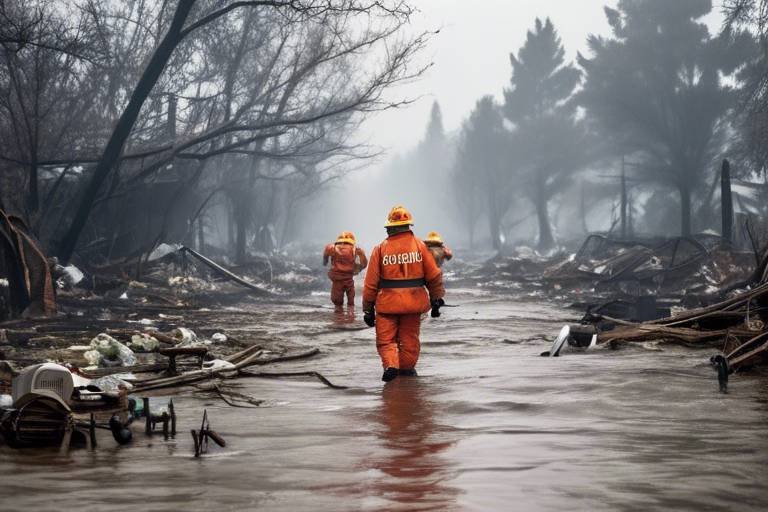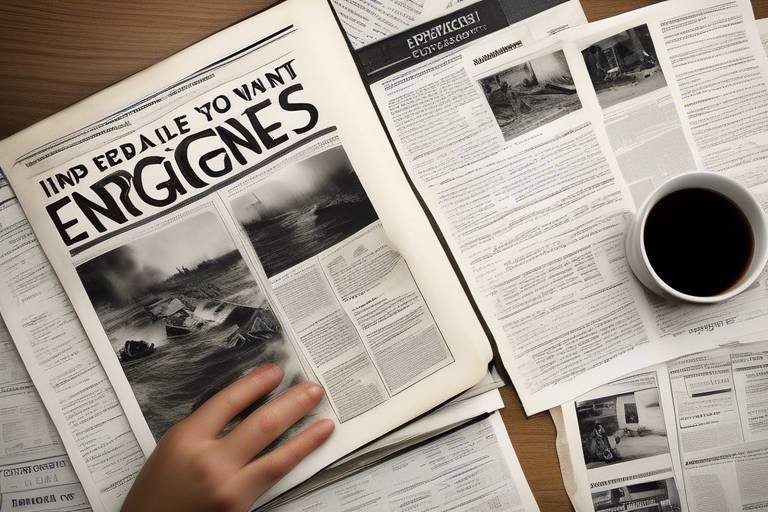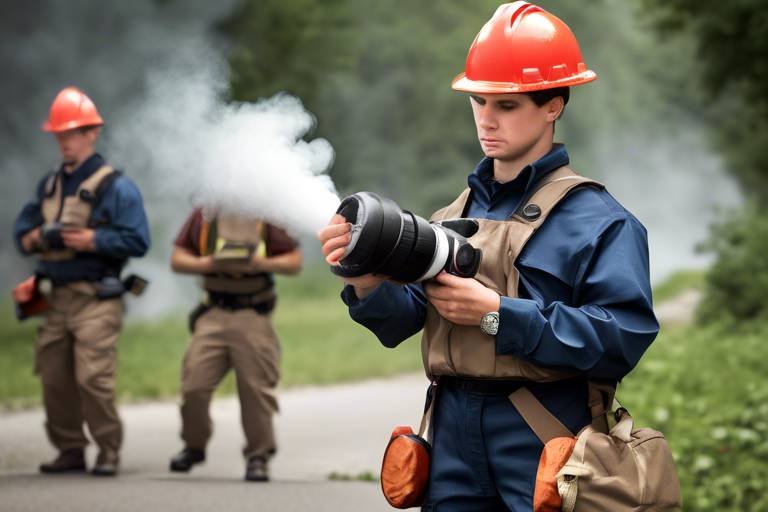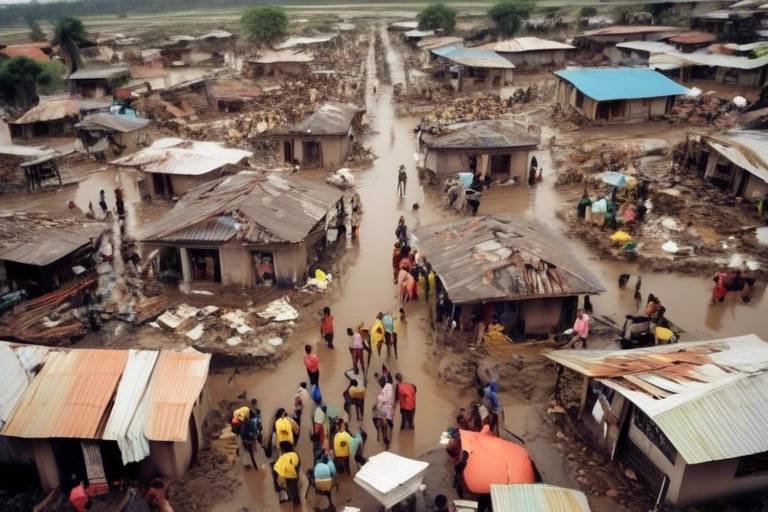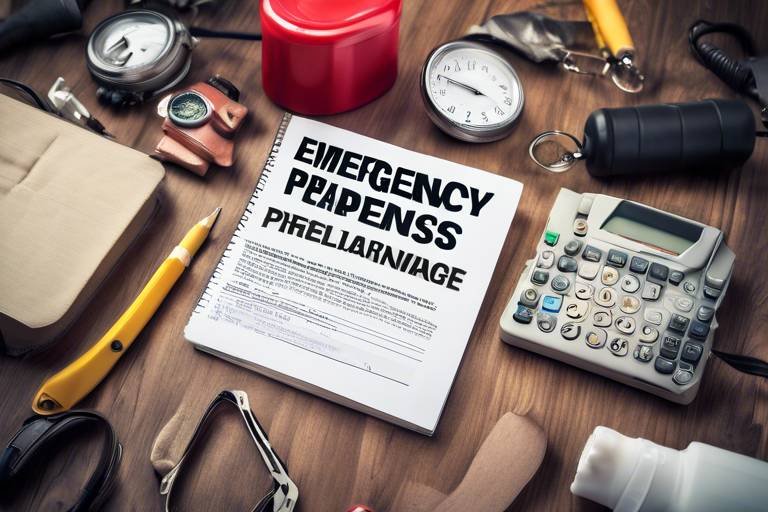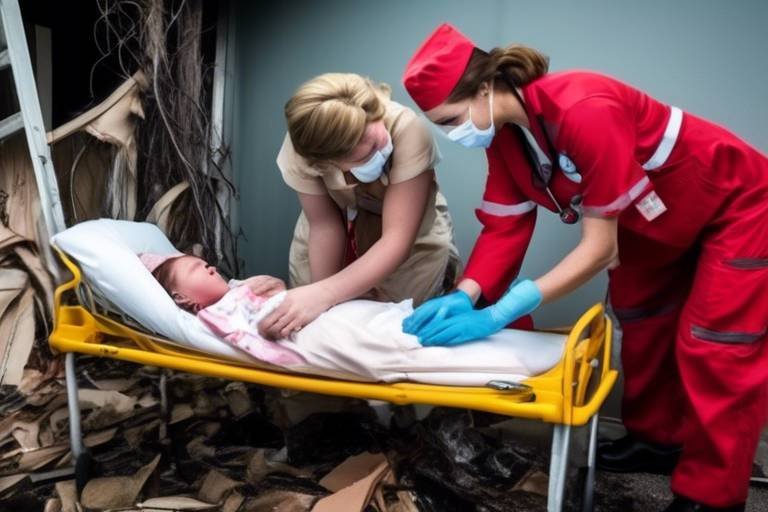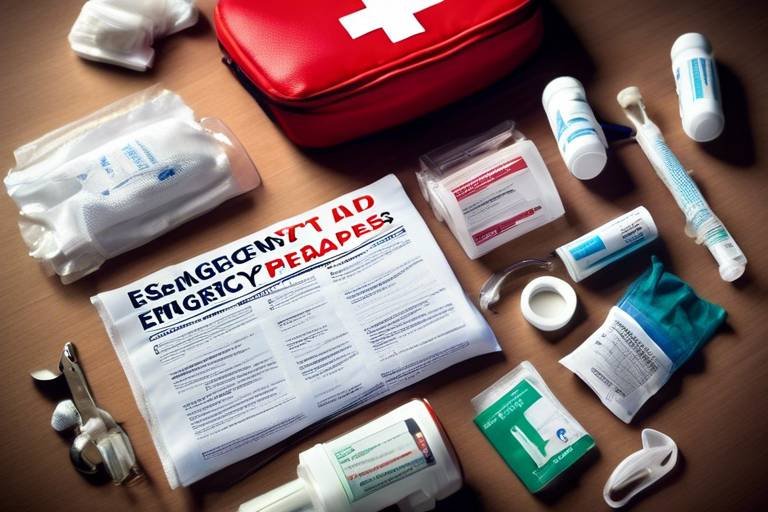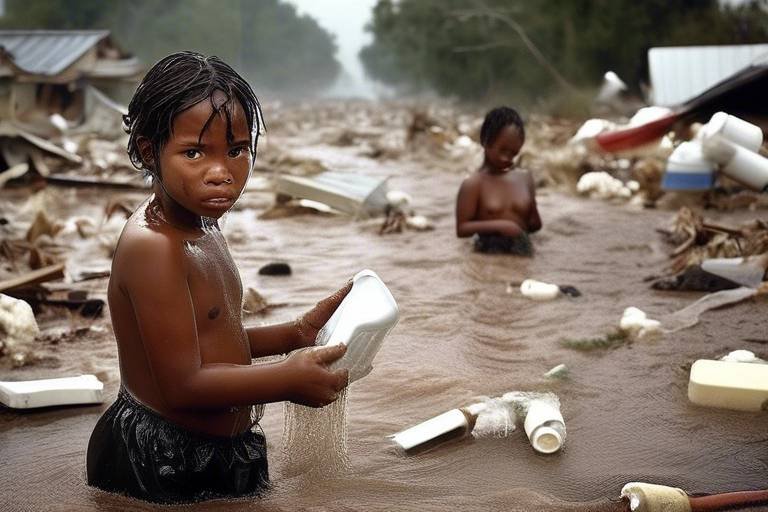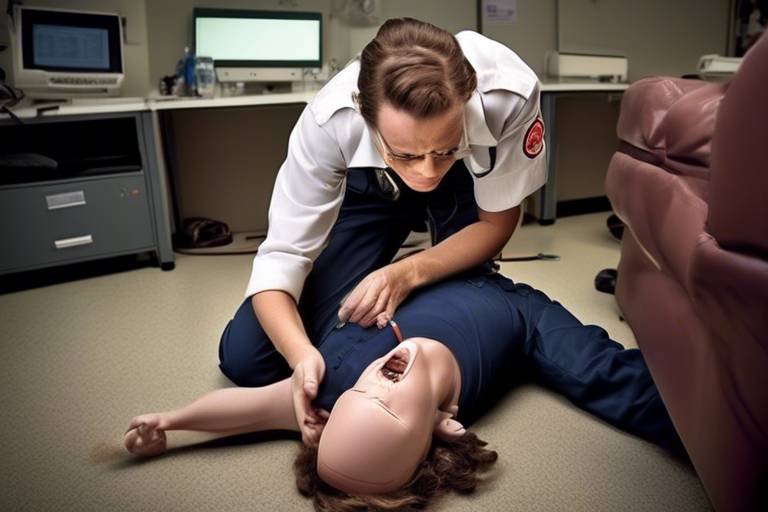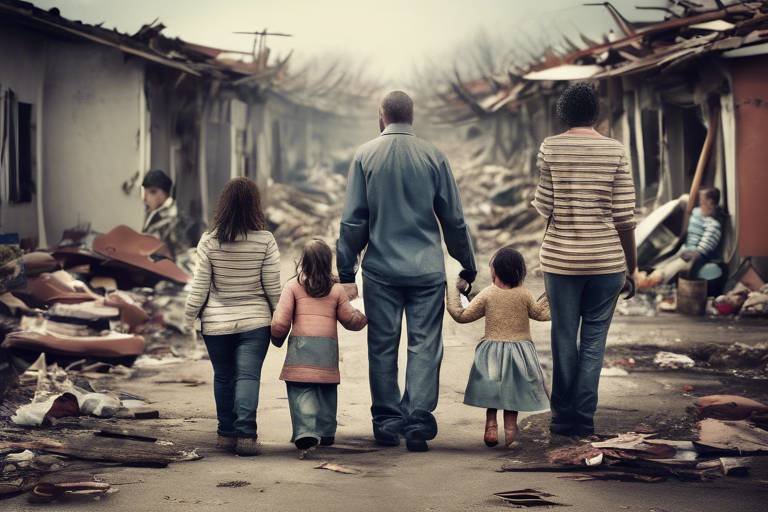Emergency Preparedness for Students Studying Abroad
Studying abroad can be one of the most exhilarating experiences of your life, but it can also come with its fair share of challenges. As a student venturing into a new country, you might find yourself in unfamiliar situations that require quick thinking and preparedness. This is where emergency preparedness comes into play. It's not just about packing your bags and booking your flight; it's about being ready for anything that might come your way. Imagine navigating through a bustling city, only to find yourself caught in a sudden storm or an unexpected emergency. What would you do? Having a solid plan in place can make all the difference.
In this article, we will explore essential strategies and resources that can help you enhance your emergency preparedness while studying abroad. From understanding local emergency services to creating a personal emergency plan, we will cover everything you need to know to ensure your safety and well-being. By the end of this guide, you will feel more confident and equipped to handle any unexpected situations, allowing you to focus on what truly matters—your education and experiences.
One of the first steps in preparing for emergencies abroad is to familiarize yourself with the local emergency services. Knowing how to contact the police, fire department, and medical assistance can significantly impact your safety during emergencies. Each country has its own emergency numbers, which may differ from what you're used to back home. For instance, in the United States, you would call 911, but in the UK, it's 999. Make sure to research and memorize these numbers before you arrive.
Additionally, it’s a good idea to visit your host country's government website or local embassy site. They often provide valuable information regarding safety protocols, emergency contacts, and tips specific to the region you will be living in. Having this information at your fingertips can be a lifesaver—literally!
Now that you understand the local emergency services, it's time to create a personal emergency plan tailored to your specific location and situation. This plan should encompass various scenarios, ensuring that you can respond effectively to different emergencies. Think of it as your safety blueprint.
Your emergency plan should include a list of essential contacts. This list can be a lifeline during crises. Here are some contacts you should consider:
- Local authorities (police, fire department, medical services)
- Your educational institution (student services, international office)
- Family members back home
- Friends or acquaintances in the area
Having these contacts written down and easily accessible can make a world of difference when time is of the essence.
Many universities offer support services specifically for international students. Familiarizing yourself with these resources can provide additional assistance during emergencies. Whether it’s counseling services or legal aid, your university can be a crucial ally. Don't hesitate to reach out to them!
Engaging with local community resources, such as expatriate groups or student organizations, can also be beneficial. These groups often share valuable information and can provide support networks in case of emergencies or unexpected situations. Think of them as your extended family in a foreign land, ready to lend a helping hand.
Another critical aspect of emergency preparedness is assembling an emergency kit. This kit should include essential items such as:
- First aid supplies
- Medications you may need
- Important documents (passport, insurance information)
- Cash in local currency
Having these items ready can prepare you for unforeseen circumstances and ensure your well-being while studying abroad. Think of it as your personal safety net.
In addition to having a plan and an emergency kit, staying informed about local news, weather conditions, and potential risks is crucial for your safety. Regularly checking reliable sources can help you anticipate and respond to emergencies effectively. Consider setting up news alerts on your phone to stay updated.
Leverage technology to enhance your safety. There are numerous safety apps available that can help you communicate and navigate during emergencies. For instance, apps that share your location with trusted contacts or provide emergency alerts can be invaluable. In a world where technology is at our fingertips, why not use it to our advantage?
Lastly, recognizing cultural differences in emergency responses can aid in better communication and understanding. Different cultures have various approaches to emergencies, and being aware of local customs and practices can improve your ability to respond appropriately in crises. It’s like learning a new language—understanding the nuances can help you navigate through tricky situations with ease.
Here are some common questions students ask about emergency preparedness while studying abroad:
- What should I do in case of a natural disaster? Familiarize yourself with the local emergency protocols and evacuation routes.
- How can I find local emergency contacts? Check your university’s website or local government resources for lists of emergency contacts.
- What items should I include in my emergency kit? Include first aid supplies, medications, important documents, and cash in local currency.
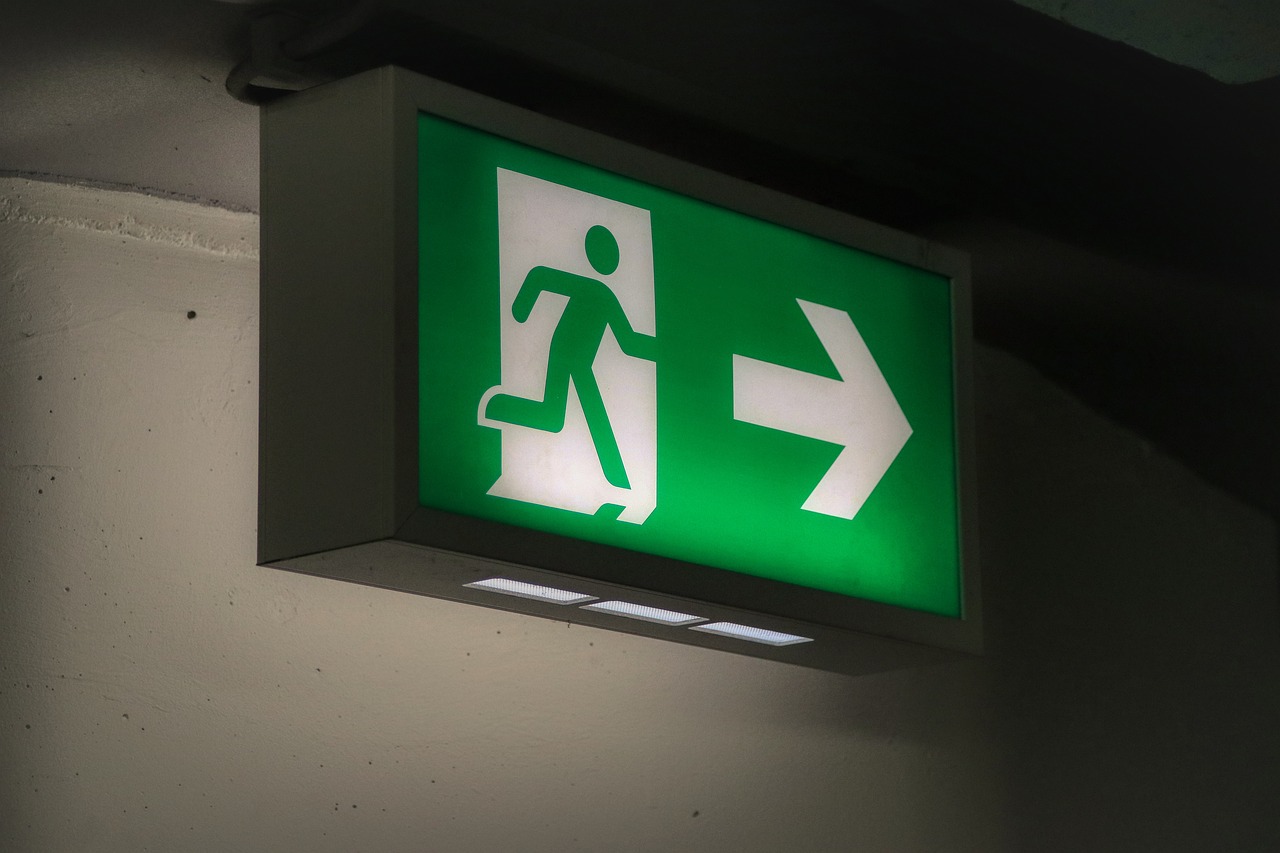
Understanding Local Emergency Services
When you find yourself in a new country, the last thing on your mind might be emergency services. However, understanding local emergency services is not just important; it's absolutely crucial. Imagine being in a situation where you need immediate help, but you don't know who to call or how to reach them. That can be a terrifying thought! By familiarizing yourself with the local emergency services, you can significantly enhance your safety and well-being while studying abroad.
First and foremost, it’s essential to know how to contact police, fire departments, and medical assistance. In many countries, emergency numbers differ from what you might be used to. For example, in the United States, you would dial 911, while in the UK, the number is 999. Here’s a quick reference table to give you an idea:
| Country | Emergency Number |
|---|---|
| United States | 911 |
| United Kingdom | 999 |
| Australia | 000 |
| Canada | 911 |
| Germany | 112 |
Knowing these numbers is just the beginning. You should also take the time to understand the specific services offered by local authorities. For instance, some countries have specialized emergency services for natural disasters, while others might have dedicated hotlines for mental health crises. Research these services online or ask local students about them. It’s like having a safety net that you can rely on when things go south.
Additionally, many universities provide resources to help international students navigate emergency situations. Make sure to check with your institution about their emergency protocols. They might have specific contacts, procedures, or even workshops that can prepare you for unexpected situations. This could be your lifeline when you need support the most.
Don’t forget about the importance of local community resources. Engaging with expatriate groups or student organizations can provide you with invaluable information and a support network. These groups often share experiences, tips, and insights that can help you understand how to handle emergencies in your new environment. It’s like having a local friend who knows the ropes and can guide you through the maze of unfamiliarity.
In conclusion, understanding local emergency services is not just about knowing numbers; it’s about equipping yourself with the knowledge and resources to keep yourself safe. So, take the time to familiarize yourself with these services, create a plan, and don’t hesitate to reach out to your university and local community. After all, being prepared is the best way to ensure peace of mind while you focus on your studies and adventures abroad.
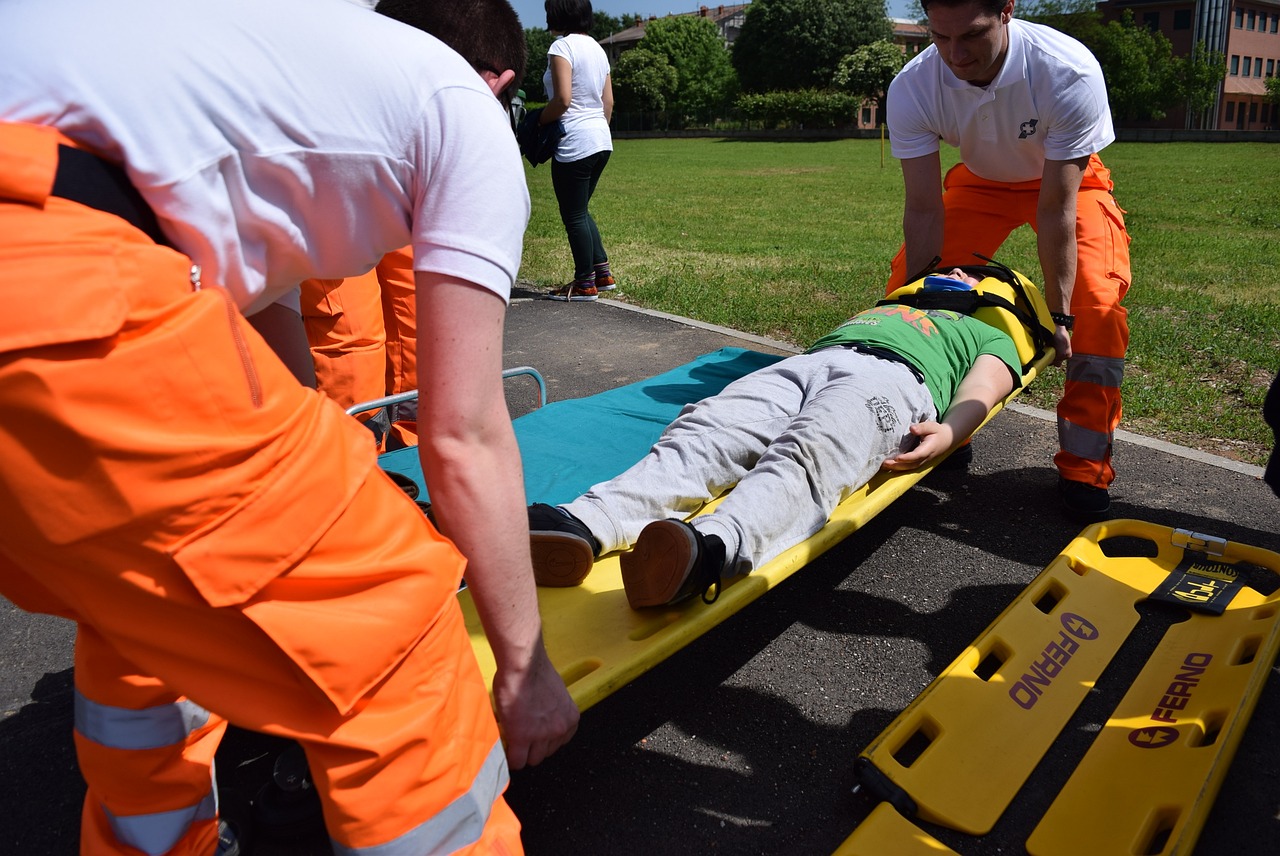
Creating a Personal Emergency Plan
When you're studying abroad, creating a personal emergency plan is not just a good idea; it's a necessity. Think of it as your safety net, a reliable guide that can help you navigate through unexpected situations with confidence. The first step in crafting this plan is to assess your specific environment. What are the potential risks in your host country? Are you living in an area prone to natural disasters, or is the city known for its political instability? Understanding these factors can significantly influence how you prepare.
Once you have a grasp on the local risks, it's time to identify the resources available to you. This includes knowing how to contact local emergency services—police, fire, and medical assistance. For instance, in many countries, the emergency number differs from the standard 911 in the United States. Familiarizing yourself with these numbers can make a world of difference when every second counts. You might want to jot down these numbers and keep them accessible on your phone or even in your wallet.
Another crucial aspect of your personal emergency plan is establishing a network of emergency contacts. This list should include:
- Your local authorities
- Your educational institution's emergency contact
- Family members back home
- Close friends or fellow students who can assist you
Having these contacts readily available can provide peace of mind and ensure you have support when you need it most. Consider creating a digital version of this list that you can access on your phone, as well as a printed copy to keep in your emergency kit.
Speaking of emergency kits, assembling one tailored to your needs is another essential step. Your kit should include basic first aid supplies, any medications you might need, important documents like your passport and visa, and even a small amount of cash. It's like packing your own little survival kit; you never know when it might come in handy!
Lastly, don't forget to review and update your emergency plan regularly. As you settle into your new environment, your circumstances may change—new contacts might be added, or different risks may emerge. Regularly revisiting your plan ensures that you stay prepared and adaptable. Think of it as a living document that grows with your experience abroad.
Remember, the goal of creating a personal emergency plan is not to instill fear but to empower you. By taking proactive steps, you can focus more on enjoying your adventure and less on worrying about what might go wrong. After all, knowledge is power, and being prepared is your best defense against the unexpected!
Q: What should I include in my emergency kit?
A: Your emergency kit should include first aid supplies, any necessary medications, copies of important documents (like your passport), cash, and contact information for local emergency services.
Q: How often should I update my emergency plan?
A: It's a good idea to review and update your emergency plan every few months or whenever your circumstances change, such as moving to a new location or if you have new contacts.
Q: What if I don't speak the local language?
A: Consider learning a few key phrases related to emergencies in the local language. Additionally, having a translation app on your phone can help bridge the communication gap in critical situations.

Identifying Emergency Contacts
When studying abroad, one of the most critical steps you can take for your safety is to identify and compile a list of emergency contacts. Imagine being in a foreign country, feeling lost or overwhelmed during a crisis; having the right contacts at your fingertips can be a lifesaver. Start by gathering essential numbers that you can access easily, whether it's through a note on your phone or a printed card in your wallet. This list should include:
- Local Emergency Services: Know the direct numbers for police, fire, and medical assistance. In many countries, emergency services can be reached by dialing a universal number, but it's always best to confirm the local equivalent.
- Your Educational Institution: Keep the contact information of your university’s international office or student support services handy. They can provide guidance and assistance in emergencies.
- Family Members: Having a way to reach out to someone back home can provide emotional support during stressful situations. Make sure they know how to contact you as well.
- Local Embassy or Consulate: In case of serious emergencies, your home country's embassy can offer vital assistance, from legal help to evacuation.
Additionally, it's wise to share your emergency contact list with a trusted friend or roommate. This way, if you find yourself in a situation where you cannot access your phone or documents, someone else can step in to help. You might also consider creating a digital version of your contact list, stored securely in the cloud, so you can access it from anywhere.
Don’t forget to familiarize yourself with local customs regarding emergencies. For instance, in some cultures, it may be more appropriate to contact community leaders or local organizations for help rather than relying solely on formal emergency services. Understanding these nuances can make a significant difference in how effectively you respond to a crisis.
As you prepare your emergency contact list, take a moment to reflect on the importance of being proactive. Just as you wouldn’t set sail on a journey without a map, navigating a new country without a plan for emergencies can leave you feeling adrift. By taking the time to identify these contacts, you’re not just preparing for the unexpected; you’re also empowering yourself to handle whatever challenges come your way.
Q: What should I do if I lose my emergency contact list?
A: If you lose your contact list, try to recall the numbers from memory. Make sure to store a digital copy in a secure cloud service for easy access. Additionally, consider asking friends or roommates if they have the information.
Q: How can I ensure my family knows how to reach me?
A: Regularly update your family about your location and any changes in your contact details. Use messaging apps or social media to stay connected and let them know you’re safe.
Q: Are there any specific local numbers I should be aware of?
A: Yes, research the local emergency numbers for police, fire, and medical assistance in the country where you are studying. Some countries have unique numbers, and it's vital to know them before you need them.
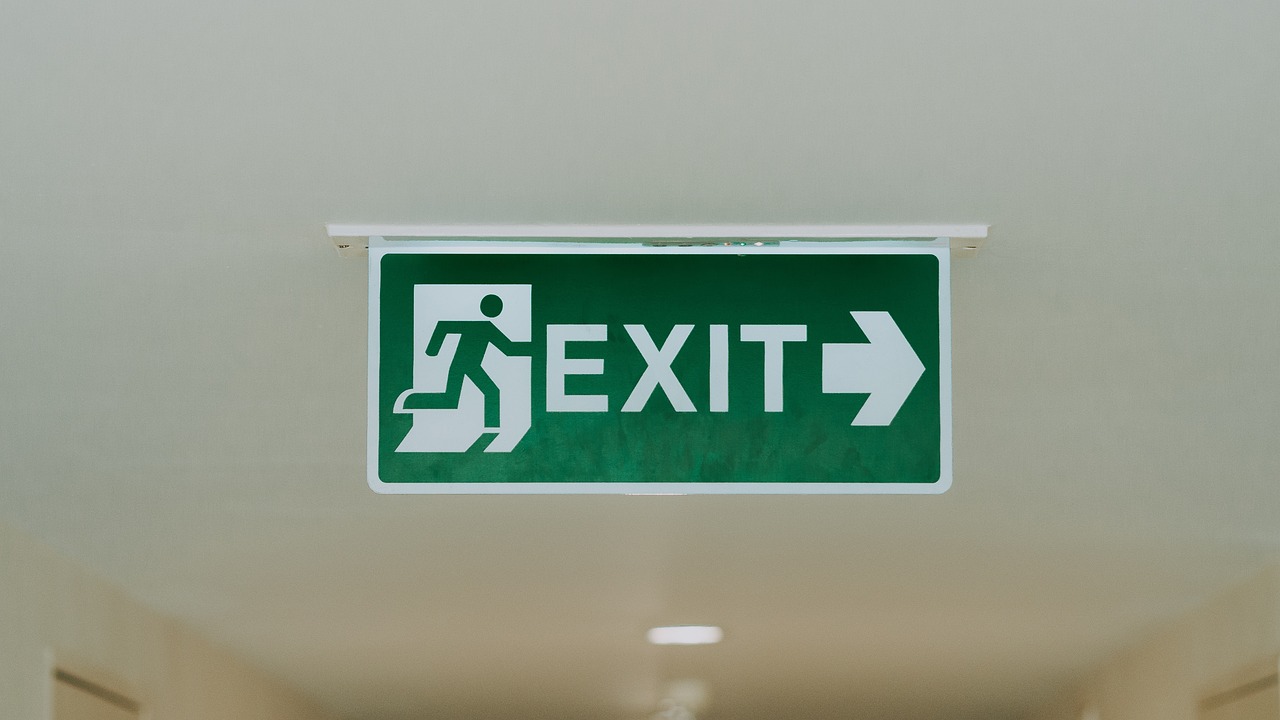
University Support Services
When studying abroad, one of the most valuable resources at your disposal is the support services provided by your university. These services are designed to help you navigate not only academic challenges but also emergencies that may arise in an unfamiliar environment. Understanding what your university offers can significantly enhance your sense of security and well-being while you’re away from home.
Many universities have dedicated offices specifically for international students. These offices typically provide a range of services, including counseling, legal advice, and emergency assistance. For instance, if you find yourself in a situation where you need urgent medical help or legal guidance, knowing that there is a team of professionals ready to assist can be incredibly reassuring. Imagine being in a foreign country, feeling lost and overwhelmed, but then realizing that your university has your back. It’s like having a safety net that you can rely on.
In addition to emergency assistance, universities often host workshops and informational sessions that cover essential topics such as cultural adaptation, safety protocols, and local laws. Participating in these programs can equip you with the knowledge needed to handle various situations effectively. Moreover, many institutions have established partnerships with local organizations, which can further broaden the support network available to you. For example, some universities collaborate with local hospitals or legal firms to ensure that students have access to necessary services without hassle.
It's also worth noting that many universities maintain a 24/7 emergency hotline specifically for international students. This means that no matter the time of day or night, help is just a phone call away. Whether you need assistance with a personal crisis, a health issue, or even just directions during a stressful situation, having access to a reliable point of contact can make all the difference.
Additionally, universities often provide resources for mental health support, which is crucial for students who may feel isolated or stressed while studying abroad. These services can include counseling sessions, peer support groups, and workshops focused on stress management and coping strategies. Remember, taking care of your mental health is just as important as your physical safety. If you ever feel overwhelmed, don’t hesitate to reach out to these services.
In conclusion, familiarizing yourself with your university's support services is a proactive step toward ensuring your safety and well-being while studying abroad. These resources are there to help you navigate challenges, provide assistance in emergencies, and enhance your overall experience. So, take the time to explore what your university offers and make the most of these invaluable services.
- What should I do in case of an emergency?
Contact local emergency services immediately and then reach out to your university's support services for further assistance.
- How can I find out about my university's support services?
Visit your university's official website or contact the international student office for detailed information on available resources.
- Are there mental health services available for international students?
Yes, most universities offer mental health support services, including counseling and workshops.
- What if I can’t speak the local language?
Many universities provide translation services or have staff members who speak multiple languages to assist international students.
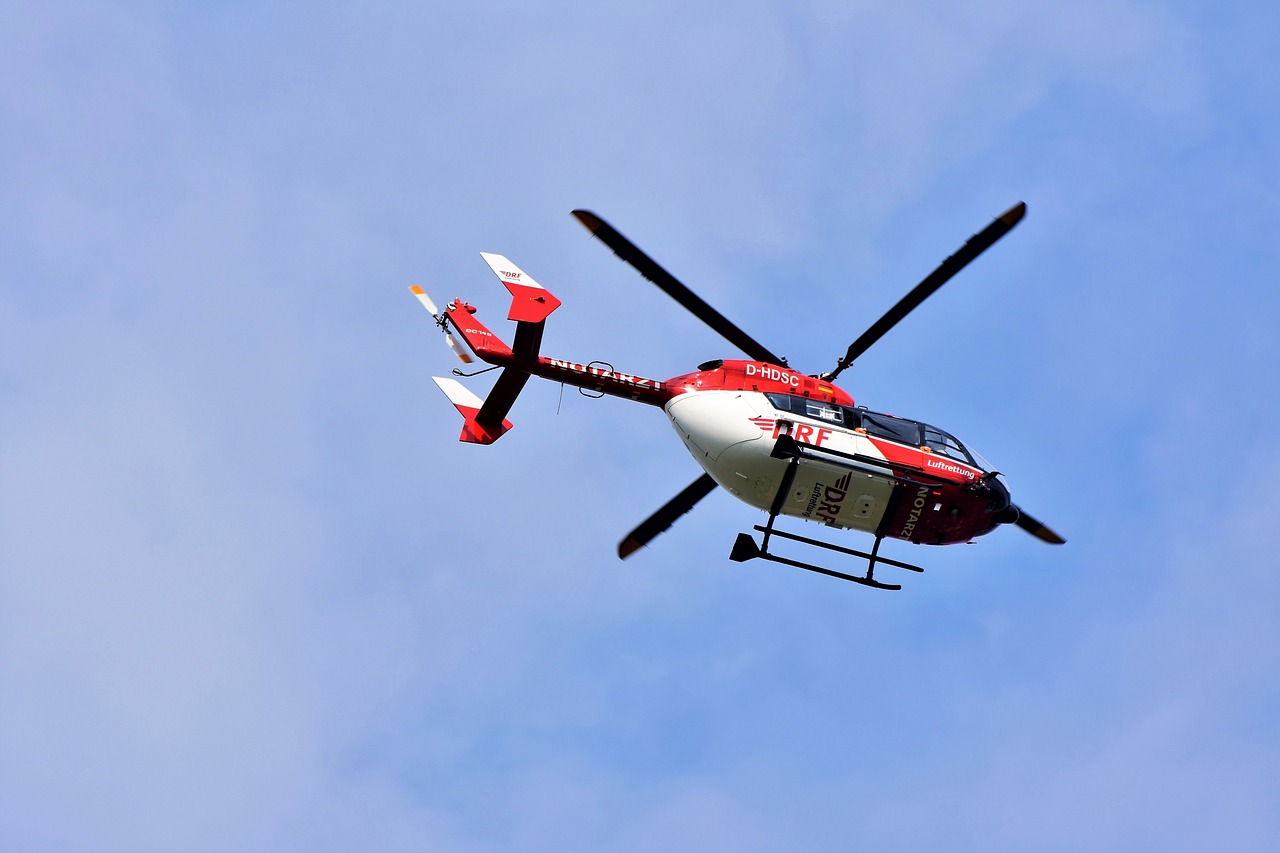
Local Community Resources
When you're studying abroad, immersing yourself in the local community can be a game changer. Not only does it help you make friends and feel more at home, but it also opens up a wealth of resources that can be incredibly valuable in emergencies. Imagine being in a foreign country, and instead of feeling isolated, you have a network of people who understand the local landscape and can offer guidance. This is where local community resources come into play.
Engaging with expatriate groups or student organizations can provide you with vital information and support networks. These groups often have firsthand experience navigating the challenges of living in a new country and can share insights about local customs, safety tips, and emergency contacts. For example, many cities have international student associations that host events, workshops, and social gatherings, giving you the chance to build connections while also learning about the area.
Additionally, consider reaching out to local non-profits or community centers that focus on international students or cultural exchange. These organizations frequently offer resources such as:
- Language support: For students who are not fluent in the local language, these resources can help bridge communication gaps.
- Cultural orientation: Workshops that teach you about local customs, laws, and emergency procedures.
- Social networks: Opportunities to meet fellow students and locals who can provide assistance and friendship.
Furthermore, many universities have partnerships with local organizations. Check with your school's international office to find out what resources are available to you. These partnerships can lead to internships, volunteering opportunities, and even emergency assistance programs.
In times of crisis, knowing who to turn to can make all the difference. By actively engaging with local community resources, you not only enhance your safety but also enrich your overall experience abroad. So, take that first step—join a local group, attend an event, or simply introduce yourself to your neighbors. You never know how these connections might help you when you need it most!
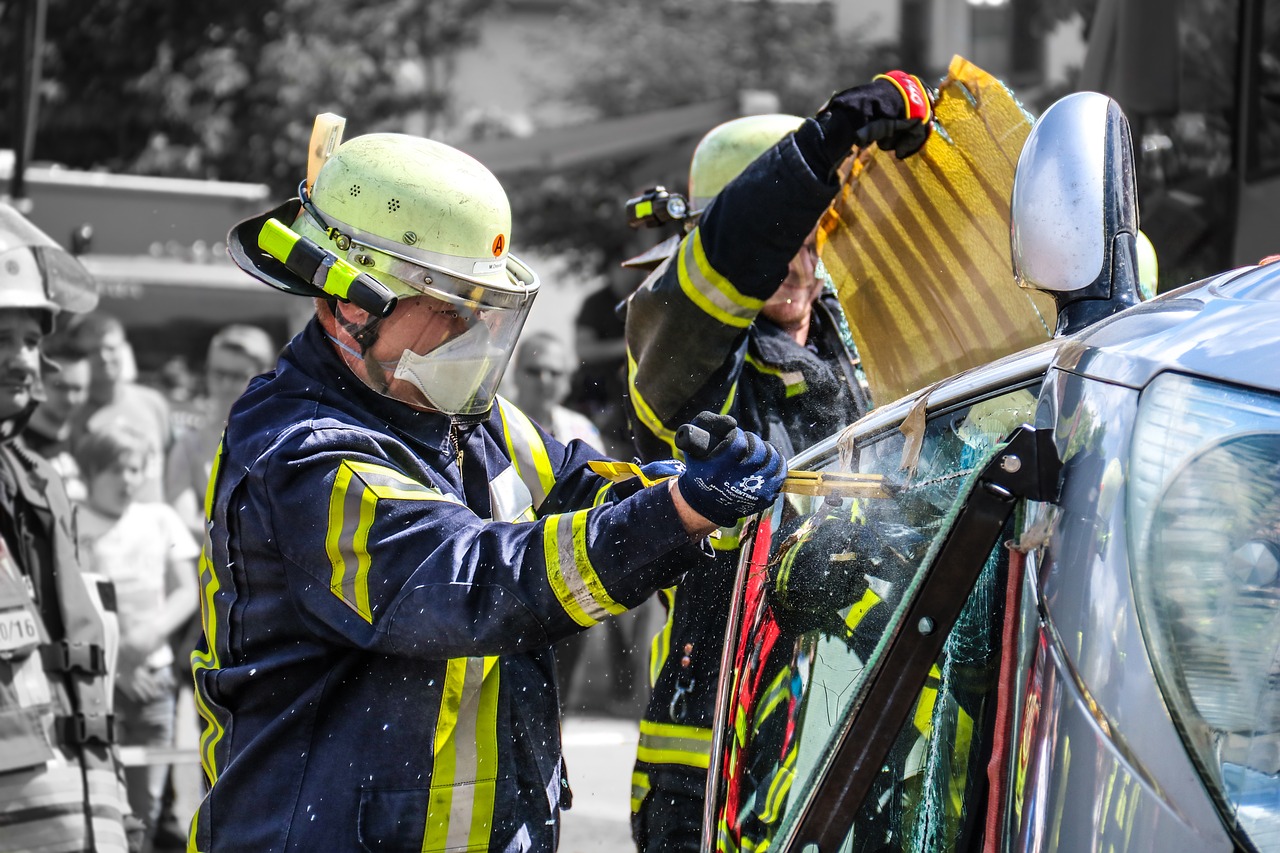
Emergency Kit Essentials
When studying abroad, being prepared for unexpected situations is not just a precaution; it's a necessity. One of the best ways to ensure your safety and well-being is by assembling a well-thought-out emergency kit. Think of your emergency kit as your personal safety net, ready to catch you when life throws curveballs. So, what should you include in this essential kit? Let's break it down.
First and foremost, your emergency kit should contain first aid supplies. This is your frontline defense against minor injuries that can happen at any time. Band-aids, antiseptic wipes, gauze, and pain relievers are just the tip of the iceberg. You might also want to include any personal medications you take regularly. Imagine being in a foreign country and realizing you don't have your asthma inhaler or allergy meds—it's a nightmare scenario!
Next, don't forget to pack important documents. This includes copies of your passport, visa, insurance information, and any critical contact numbers. It’s wise to keep these documents in a waterproof pouch. If an emergency strikes, having these documents at your fingertips can make a world of difference. You can even consider using digital copies stored securely on your phone or a cloud service for easy access.
Additionally, consider adding some basic survival items to your kit. A flashlight, extra batteries, a whistle, and a multi-tool can be incredibly useful in emergencies. Picture yourself in a situation where the power goes out, and you need to navigate your way to safety—having a flashlight can literally light your path.
Another often-overlooked item is a portable phone charger. In today's world, our phones are our lifelines. They keep us connected to emergency services, family, and friends. A dead phone battery in a crisis can leave you feeling isolated and anxious. So, invest in a reliable power bank to keep your devices charged and ready.
Lastly, consider including some non-perishable food items and water. Think of these as your survival snacks. In a situation where you might be stuck without access to food, having some granola bars or trail mix can help keep your energy up. Water is essential, too; aim for at least a liter to ensure you stay hydrated.
In summary, your emergency kit should be a reflection of your personal needs and the environment you’re in. By taking the time to prepare this kit, you are not just packing items; you are investing in your peace of mind and safety. Remember, being prepared is not just about having the right items; it's about feeling empowered and ready to face the unexpected.
- What should I prioritize in my emergency kit? Focus on first aid supplies, important documents, personal medications, and basic survival items.
- How often should I check my emergency kit? It's a good idea to review your kit every few months to ensure everything is up to date and in good condition.
- Can I keep my emergency kit in my dorm room? Yes, keeping your emergency kit in your dorm room makes it easily accessible in case of an emergency.
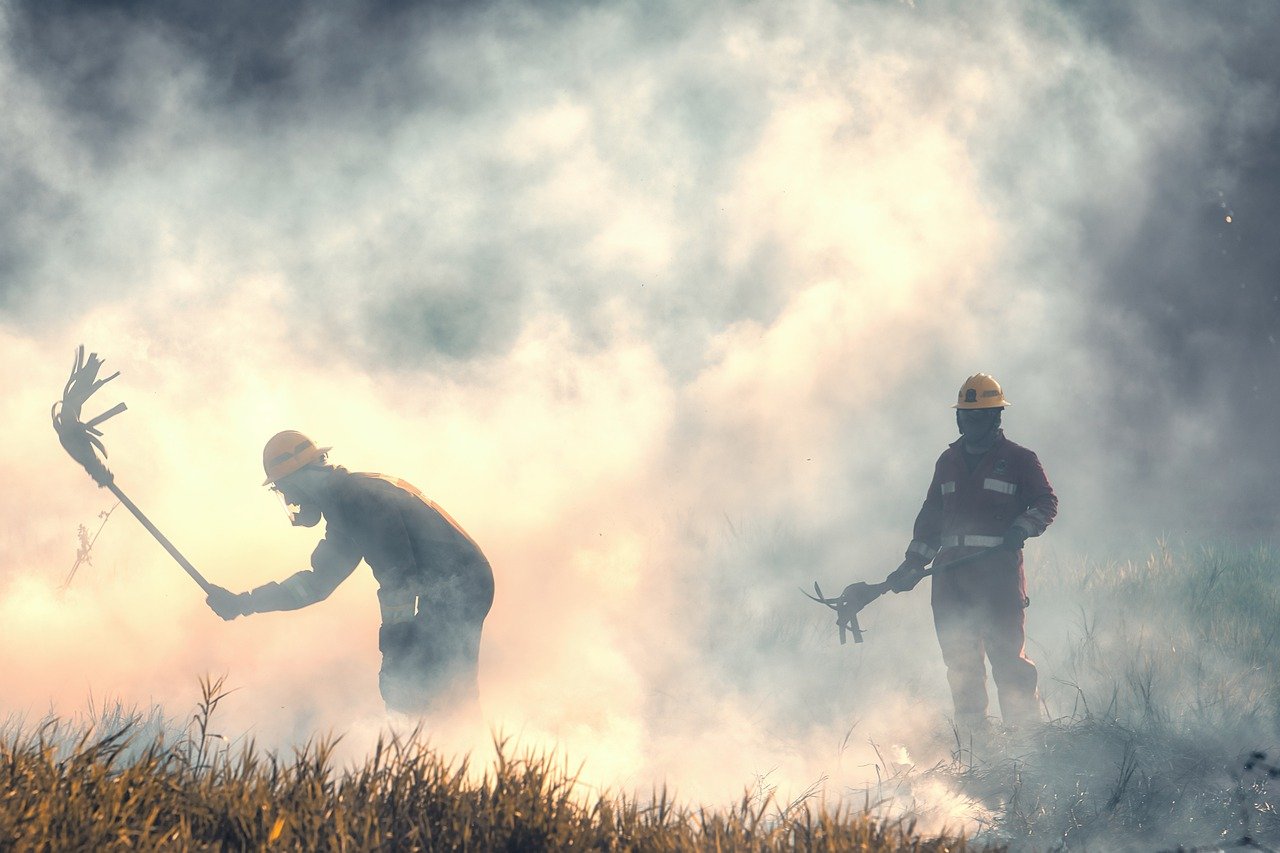
Staying Informed and Aware
When you’re studying abroad, staying informed and aware of your surroundings is not just a good habit; it’s a lifesaver. Imagine being in a foreign country where everything feels new and exciting, but at the same time, there’s an underlying need to remain vigilant. You wouldn’t want to be caught off guard by unexpected events, right? Keeping an eye on local news, weather updates, and community alerts can significantly enhance your safety.
One of the best ways to stay updated is by following reliable local news outlets. Many cities have dedicated news websites or apps that provide real-time updates on various situations, from weather alerts to public safety announcements. By subscribing to these channels, you can receive notifications directly on your phone, ensuring that you are always in the loop. Think of it as having a personal assistant who whispers the latest happenings in your ear!
Additionally, consider joining local online forums or social media groups that cater to expatriates or international students. These platforms can be invaluable for sharing experiences and information. You can learn from others who have navigated similar situations, and they can provide tips on what to do in case of emergencies. It’s like having a safety net made up of people who understand what you’re going through!
Also, don’t underestimate the power of technology. There are numerous apps designed to keep you informed and safe while you’re abroad. For instance, weather apps can alert you about sudden storms or natural disasters, while safety apps can provide emergency contacts and location-sharing features. Here’s a quick rundown of some useful apps you might want to consider:
| App Name | Purpose |
|---|---|
| Weather Channel | Real-time weather updates and alerts |
| Find My Friends | Location sharing with trusted contacts |
| Emergency Alerts | Local emergency notifications and alerts |
In addition to technology, staying aware of your immediate environment is crucial. This means being conscious of the people around you and the overall atmosphere of your surroundings. Are there any unusual activities? Is there a crowd gathering? Trust your instincts; if something feels off, it probably is. For example, if you notice a sudden change in the behavior of people around you, it might be worth taking a step back and reassessing your situation.
Finally, remember that knowledge is power. Equip yourself with information about the local emergency services, such as police stations, hospitals, and fire departments. Knowing how to reach these services can make a world of difference in a crisis. Take a moment to jot down these contacts and keep them handy. It’s like having a roadmap to safety right in your pocket!
In conclusion, staying informed and aware while studying abroad is not just about being cautious; it’s about empowering yourself to enjoy your experience to the fullest. By keeping up with local news, utilizing technology, and being aware of your surroundings, you can navigate your new environment with confidence and peace of mind.
- What should I do in case of an emergency while studying abroad? Always contact local emergency services first and then inform your university's support services.
- How can I find reliable local news sources? Search online for local news websites or use social media to follow community updates.
- What apps are recommended for safety while studying abroad? Consider using weather apps, emergency alert apps, and location-sharing apps to stay informed.
- Is it important to know the local language for emergencies? While not essential, knowing basic phrases can be incredibly helpful in emergencies.
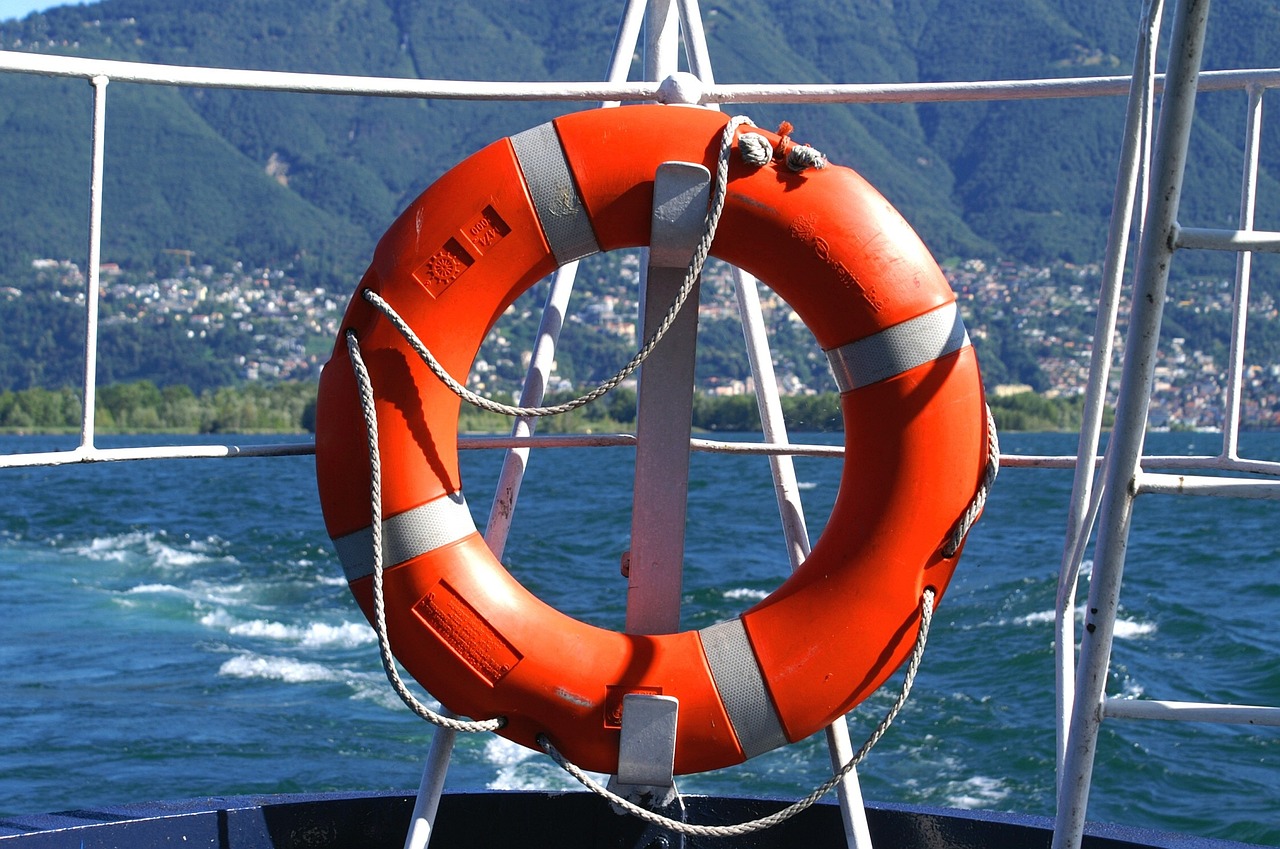
Utilizing Technology for Safety
In today's digital age, technology plays a pivotal role in ensuring our safety, especially when studying abroad. Imagine having a personal safety net right in your pocket! With the right tools, you can enhance your preparedness and responsiveness in emergencies. First off, let’s talk about safety apps. There are numerous applications designed specifically for students and travelers that provide real-time updates on local emergencies, safety alerts, and even tips on how to stay safe in unfamiliar areas. For instance, apps like Life360 allow you to share your location with trusted friends or family members, making it easier for them to check on you during a crisis.
Additionally, many universities have their own safety apps that offer features like emergency contacts, campus alerts, and even virtual escorts to help you navigate the campus safely at night. These resources are invaluable, providing a direct line to campus security and local authorities. But don’t just stop there! Consider utilizing social media platforms to stay connected with fellow students and local groups. Joining community pages can keep you informed about potential risks or safety tips shared by others who are in the same boat as you.
Furthermore, GPS technology can be a lifesaver. Make sure your phone's location services are enabled, so you can easily find your way back if you get lost or need to navigate to the nearest safe spot. It's like having a trusty compass that never fails! And don’t forget about emergency contacts stored in your phone. Make a list of local emergency numbers and keep them easily accessible. This way, you can quickly dial for help without wasting precious time searching for information.
In addition to apps and GPS, consider investing in a portable charger. When you’re out and about, your phone’s battery can drain quickly, especially if you’re using it for navigation or safety apps. Having a charger on hand ensures that you remain connected, even during long days of exploring or unexpected situations. Remember, staying connected is key to your safety!
Lastly, always keep your software updated. Regular updates often include security patches that protect your personal information and enhance the functionality of safety apps. Think of it as giving your digital safety tools a little tune-up to ensure they’re running at peak performance. By leveraging these technological resources, you can create a robust safety net that empowers you to navigate your study abroad experience with confidence.
- What are some essential safety apps for students studying abroad? Some popular options include Life360, Campus Safety, and local emergency services apps.
- How can I share my location with family and friends? You can use location-sharing features in apps like Google Maps or Life360 to keep loved ones informed of your whereabouts.
- Is it important to have a portable charger? Absolutely! A portable charger ensures your phone stays powered, which is crucial for staying connected in emergencies.
- What should I do if I lose my phone while abroad? Immediately report the loss to your local authorities and consider using tracking features offered by your phone's operating system.

Understanding Cultural Differences in Emergencies
When studying abroad, one of the most important yet often overlooked aspects of your experience is understanding how cultural differences can impact emergency situations. Imagine, for a moment, you find yourself in a crisis—perhaps a natural disaster or a medical emergency. The way people react, communicate, and seek help can vary significantly from what you might be accustomed to back home. This is why it's crucial to familiarize yourself with the local customs and practices regarding emergencies.
In many cultures, for instance, the concept of community support plays a pivotal role during crises. In some countries, it’s common for neighbors to band together to help each other, while in others, individuals may rely more heavily on formal emergency services. Understanding these dynamics can help you navigate your response during emergencies more effectively. For example, if you're in a country where people tend to call upon friends and family first, you may want to establish a local network of contacts who can assist you in times of need.
Additionally, the communication styles prevalent in different cultures can greatly influence how emergencies are handled. In some places, direct communication is favored, while in others, a more indirect approach is preferred. This could affect everything from how you report an emergency to how you seek assistance. For instance, if you find yourself in a situation where you need to contact local authorities, understanding whether you should be forthright or more diplomatic can make all the difference.
Moreover, certain cultures may have specific emergency protocols that are not immediately obvious to outsiders. For example, in some countries, there may be a strong emphasis on following specific procedures during evacuations or medical emergencies. Familiarizing yourself with these protocols can not only enhance your safety but also help you blend in and respond appropriately. Here are a few points to consider:
- Emergency Numbers: Different countries have different emergency numbers. Make sure you know which numbers to call for police, fire, and medical emergencies.
- Local Customs: Some cultures may have unique ways of addressing emergencies, such as community meetings or rituals that may take place during a crisis.
- Language Barriers: If you’re in a country where English isn’t the primary language, learning a few key phrases related to emergencies can be invaluable.
Lastly, don't underestimate the importance of local knowledge. Engaging with locals, whether through your university, community groups, or even casual conversations, can provide insights that textbooks or websites may not cover. They can share firsthand experiences and advice on how to handle various emergency scenarios, making your study abroad experience not only safer but also richer.
Q: What should I do if I encounter a language barrier during an emergency?
A: It's essential to learn a few key phrases in the local language. Additionally, consider using translation apps or carrying a pocket dictionary to help communicate your needs.
Q: How can I build a local support network while studying abroad?
A: Join student organizations, attend local events, and connect with classmates. Engaging in community activities can help you meet people who may assist you in emergencies.
Q: What are some common emergency numbers I should memorize?
A: Research the local emergency numbers for police, fire, and medical assistance before you travel. Write them down and keep them accessible.
Frequently Asked Questions
- What should I do in case of an emergency while studying abroad?
In the event of an emergency, remain calm and assess the situation. Immediately contact local emergency services using the local emergency numbers, which you should have noted down in advance. If you're in a university setting, reach out to campus security or support services for guidance. Always have your personal emergency plan handy to help you navigate the situation effectively.
- How can I create a personal emergency plan?
Creating a personal emergency plan involves identifying potential risks in your study location and outlining steps to address them. Start by compiling a list of emergency contacts, including local authorities, your university, and family members. Consider factors such as your living situation, nearby hospitals, and evacuation routes. Regularly review and update your plan to ensure it remains relevant.
- What items should I include in my emergency kit?
Your emergency kit should contain essential items such as a first aid kit, medications, important documents (like your passport and insurance information), a flashlight, bottled water, and non-perishable snacks. It's also wise to include a portable phone charger and a map of the area. Tailor your kit to your specific needs and local conditions.
- How can I stay informed about local emergencies?
To stay informed, regularly check local news sources, weather apps, and social media platforms for updates. Consider downloading safety apps that provide alerts about emergencies in your area. Joining local expatriate groups or student organizations can also offer valuable insights and real-time information about potential risks.
- What technology can I use to enhance my safety?
Utilizing technology like safety apps can significantly improve your safety while studying abroad. Apps that offer location-sharing features, emergency contacts, and real-time alerts can keep you connected with friends and family. Additionally, familiarize yourself with any local emergency apps that provide vital information specific to your location.
- Are there cultural differences in how emergencies are handled?
Yes, cultural differences can influence emergency responses. It's essential to understand local customs regarding emergencies, such as how to communicate with authorities or the expected behavior during a crisis. Being aware of these differences can improve your ability to respond effectively and ensure your safety in unfamiliar situations.


